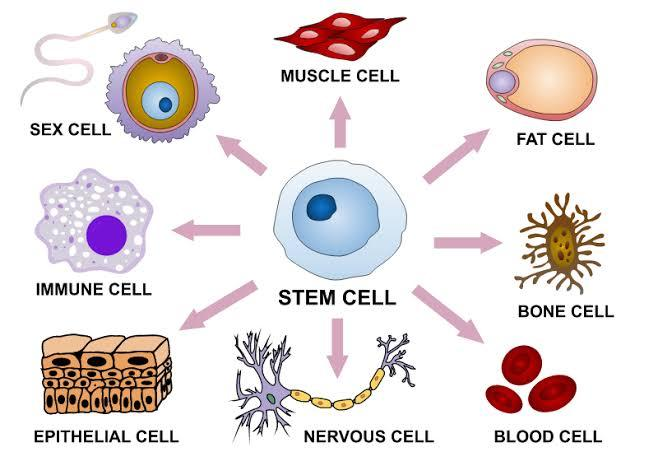
What is meant by cell differentiation?
Answer
564.9k+ views
Hint:Cell differentiation is the process in which differentiation or the division of cells occurs to give rise to specific functions. The cells that can divide and give rise to differentiated cells are known as stem cells. Embryo also has such cells which show cell differentiation.
Complete answer:Cellular differentiation is the process in which a cell or tissue differentiates to form other specialized cells. These cells then perform specific functions. The process of cell differentiation enables energy conservation and increases the efficiency of an organ since different tissues perform different functions and the division of labor is seen.
The adaptation of specific functions and features by the cell is termed as cell differentiation and is seen in both plants and animals. In animals, an embryo differentiates into various cells giving rise to a fetus. In-plant differentiation is seen in the meristematic cells which form other important and specific cells of the plant body. Dedifferentiation is the process in which the already differentiated cells regain the ability to divide while Redifferentiation refers to the process in which the already dedifferentiated cells again lose the ability to divide, they become redifferentiated.

Note: It should be noted that cell differentiation is different from dedifferentiation, in which the already differentiated cells regain the ability to divide. Further, Redifferentiation, in which the already dedifferentiated cells again lose the ability to divide. All these three must not be confused with one another. In an embryo, differentiation occurs because it gives rise to different cell types from a single cell known as the zygote.
Complete answer:Cellular differentiation is the process in which a cell or tissue differentiates to form other specialized cells. These cells then perform specific functions. The process of cell differentiation enables energy conservation and increases the efficiency of an organ since different tissues perform different functions and the division of labor is seen.
The adaptation of specific functions and features by the cell is termed as cell differentiation and is seen in both plants and animals. In animals, an embryo differentiates into various cells giving rise to a fetus. In-plant differentiation is seen in the meristematic cells which form other important and specific cells of the plant body. Dedifferentiation is the process in which the already differentiated cells regain the ability to divide while Redifferentiation refers to the process in which the already dedifferentiated cells again lose the ability to divide, they become redifferentiated.

Note: It should be noted that cell differentiation is different from dedifferentiation, in which the already differentiated cells regain the ability to divide. Further, Redifferentiation, in which the already dedifferentiated cells again lose the ability to divide. All these three must not be confused with one another. In an embryo, differentiation occurs because it gives rise to different cell types from a single cell known as the zygote.
Recently Updated Pages
Master Class 11 Computer Science: Engaging Questions & Answers for Success

Master Class 11 Business Studies: Engaging Questions & Answers for Success

Master Class 11 Economics: Engaging Questions & Answers for Success

Master Class 11 English: Engaging Questions & Answers for Success

Master Class 11 Maths: Engaging Questions & Answers for Success

Master Class 11 Biology: Engaging Questions & Answers for Success

Trending doubts
One Metric ton is equal to kg A 10000 B 1000 C 100 class 11 physics CBSE

There are 720 permutations of the digits 1 2 3 4 5 class 11 maths CBSE

Discuss the various forms of bacteria class 11 biology CBSE

Draw a diagram of a plant cell and label at least eight class 11 biology CBSE

State the laws of reflection of light

Explain zero factorial class 11 maths CBSE




